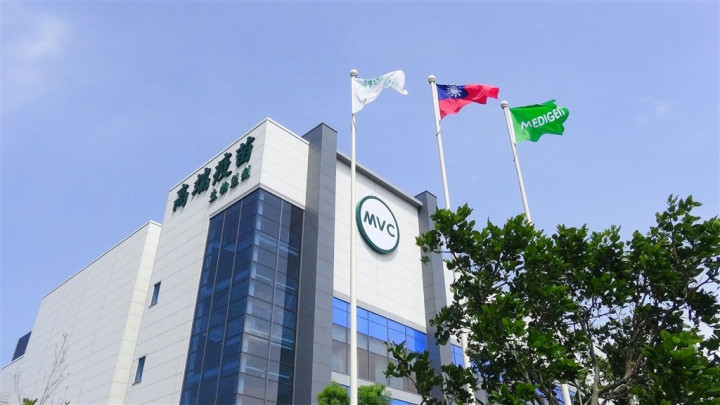
Taipei, June 10 (CNA) Medigen Vaccine Biologics Corp., a Taiwan-based biopharmaceutical company, announced on Thursday that its COVID-19 vaccine candidate met governmental safety and efficacy thresholds during Phase II clinical trials.
At a press conference, the company said its two-dose recombinant protein vaccine candidate met the review standards for Emergency Use Authorization (EUA) of domestic COVID-19 vaccines, which the Taiwan Food and Drug Administration (FDA) published earlier that day.
Based on the results, Medigen said it would soon submit an EUA application to the FDA, increasing the likelihood the company's jab will become the first Taiwanese COVID-19 vaccine to reach the market.
It would also apply with the European Medicines Agency and other international health authorities to begin Phase III clinical trials as soon as possible.
According to the guidelines announced by the FDA, domestic vaccines must have a neutralizing antibody potency level equal to or higher than that of the AstraZeneca COVID-19 vaccine in order to be considered for an EUA.
However, because Taiwan's vaccine candidates have not begun larger Phase III trials - which are typically the standard for determining efficacy - the FDA will allow Phase II results to be analyzed via immunobridging, an approach which uses the immune responses measured in clinical trial participants to infer the vaccine's overall level of protection.
According to the FDA, the analysis must be based on samples of serum neutralizing antibodies taken 28 days after participants in a Phase II clinical trial of over 3,000 people received their second vaccine dose.
For the vaccine to be approved, the samples must have a neutralizing antibody geometric mean titer ratio (which refers to antibody concentration) of at least 0.67 and a sero-response rate (which refers to potency of response) of at least 50 percent, the FDA said.
At its press conference, Medigen said the participants in its study had a GMT Titer of 662, equivalent to a GMT ratio of 163, and a seroconversion rate of 99.8 percent.
Among participants aged 20-64, the GMT Titer rose to 733, equivalent to a GMT ratio of 180, while the seroconversion rate was 99.9 percent, the company said.
No participants in the trials experienced severe adverse reactions, it added.
Medigen, one of two Taiwanese companies in Phase II trials for a COVID-19 vaccine candidate, has said its recombinant protein vaccine was developed in collaboration with the U.S. National Institutes of Health.
The company began Phase II clinical trials in January at 11 hospitals across Taiwan, with a total of over 4,000 participants, one out of every seven of which was given a placebo. According to Medigen, all participants in the trials received their second dose of the vaccine candidate on April 28 and had a follow-up examination one month later.
The data collected during the trials has been analyzed by a third party research organization, and will be submitted to the FDA with an application for Emergency Use Authorization, according to the company.
Taiwan's government has signed contracts to purchase 5 million doses of the Medigen vaccine and another 5 million doses from United Biomedical Inc., which is reportedly close to finishing its own Phase II trials.
President Tsai Ing-wen has promised that doses of a domestic vaccine will start being distributed in July, giving a timely boost to the country's lagging vaccination campaign.
Critics, including a scientist who recently resigned from the government's vaccine review committee in protest, have argued that Tsai's statements on the issue have placed undue political pressure on regulators to approve the vaccines.
Taiwan began its rollout of the first COVID-19 vaccine doses it procured on March 22, and as of Thursday morning, 759,746 doses of the AstraZeneca vaccine had been administered.
The government has also signed contracts to procure nearly 20 million vaccines from abroad, including 5.05 million doses of Moderna, 10 million of AstraZeneca, and 4.76 million of unspecified brands through the COVAX program.